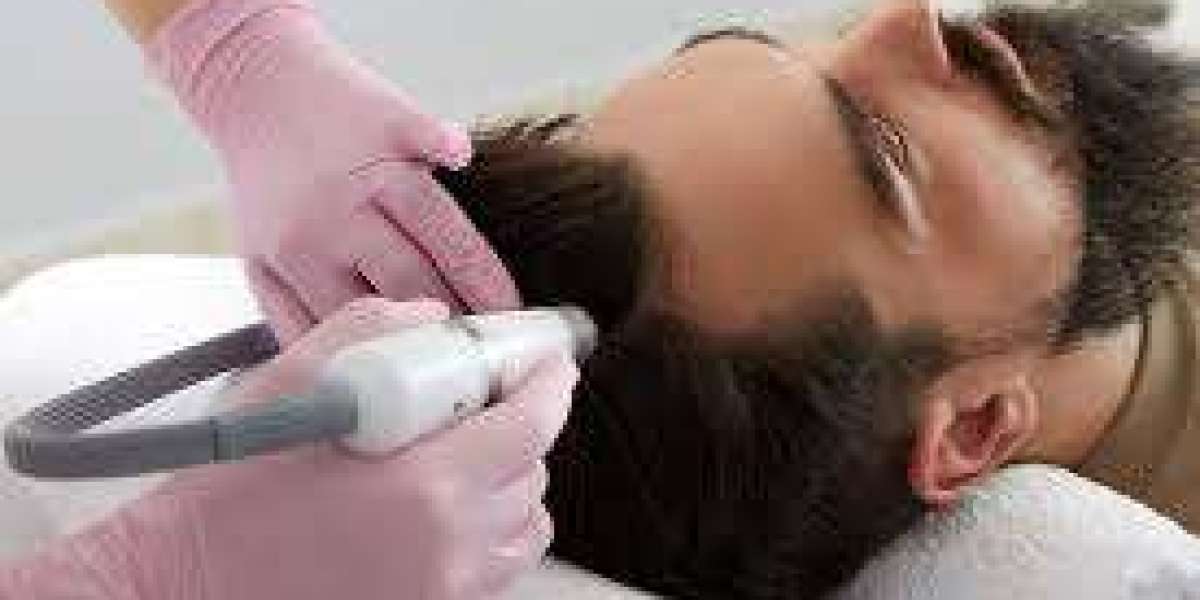Hair is not only a sign of beauty and confidence but also an indicator of your overall health. If you’re experiencing thinning hair, slow growth, or even early hair loss, you're not alone. While a hair transplant specialist can provide advanced solutions for severe hair loss, many people are looking for natural hair health remedies to improve growth, strengthen strands, and maintain scalp health—without invasive treatments. The good news is, several natural ingredients and habits are supported by scientific studies to promote healthy hair growth.
Here are the top 10 natural remedies for hair growth that are backed by science:
1. Scalp Massage
Massaging your scalp regularly increases blood flow to hair follicles, which may stimulate hair growth. A 2016 study published in ePlasty showed that just four minutes of scalp massage daily for 24 weeks resulted in increased hair thickness. You can enhance the benefits by using oils like coconut or rosemary oil during the massage.
2. Rosemary Oil
This essential oil is a favorite among trichologists and natural health experts. In a 2015 study published in Skinmed, rosemary oil was found to be just as effective as minoxidil (a common hair growth treatment) after six months of use, with fewer side effects. It stimulates hair follicles, improves circulation, and has anti-inflammatory properties.
How to use: Dilute rosemary oil with a carrier oil like jojoba or coconut oil and apply to your scalp 2–3 times a week.
3. Biotin-Rich Foods
Biotin, also known as vitamin B7, is essential for keratin production—keratin being a protein that makes up your hair. Biotin deficiency is linked to hair thinning. While biotin supplements are popular, natural sources like eggs, almonds, avocados, and sweet potatoes are effective and safer long-term options.
4. Saw Palmetto
Saw palmetto is a herbal extract that blocks the enzyme 5-alpha-reductase, which converts testosterone into DHT—a hormone linked to hair loss. Research published in the Journal of Alternative and Complementary Medicine found that taking 320 mg of saw palmetto daily improved hair growth in 60% of participants.
5. Pumpkin Seed Oil
Pumpkin seed oil is rich in antioxidants and omega-3 fatty acids. A 2014 study in Evidence-Based Complementary and Alternative Medicine showed that men who took 400 mg of pumpkin seed oil daily for 24 weeks saw a 40% increase in hair count. It may block DHT, similar to saw palmetto.
6. Onion Juice
Though not the most pleasant-smelling remedy, onion juice is loaded with sulfur, which improves blood circulation and collagen production. A 2002 study found that 74% of participants with alopecia areata saw hair regrowth after applying onion juice to their scalp twice a day for four weeks.
7. Aloe Vera
Aloe vera soothes the scalp, reduces dandruff, and unblocks hair follicles that may be blocked by excess oil. It contains proteolytic enzymes that help repair dead skin cells on the scalp. Consistent use can promote a healthy scalp environment for hair growth.
8. Green Tea (Topical or Oral)
Green tea is rich in polyphenols, especially epigallocatechin gallate (EGCG), which has been shown to inhibit DHT and support hair follicle health. Studies on mice show significant improvement in hair growth when green tea extract is applied topically or taken orally.
9. Diet Rich in Iron and Zinc
Iron deficiency is one of the most common causes of hair thinning in women. Zinc helps with hair tissue growth and repair. Include foods like spinach, lentils, pumpkin seeds, and oysters in your diet for a natural boost.
10. Stress Reduction Techniques
Chronic stress can lead to telogen effluvium, a condition where hair falls out after stressful events. Mindfulness, yoga, and regular exercise can lower cortisol levels and promote a healthy hair growth cycle. A hair transplant specialist will often recommend stress management as part of a comprehensive hair health plan.
When to See a Hair Transplant Specialist
While natural remedies are effective for many, they may not be enough for advanced hair thinning or genetic hair loss (androgenetic alopecia). If you've tried various natural hair health remedies with minimal success, consulting a hair transplant specialist could be the next step. These professionals can assess your scalp health, determine the root cause of hair loss, and recommend advanced treatments like PRP (platelet-rich plasma), microneedling, or hair transplant surgery.
Final Thoughts
Incorporating these scientifically-backed, natural hair health remedies into your routine can promote stronger, healthier hair and even prevent further hair loss. The key is consistency and patience. If you’re not seeing results after several months, don’t hesitate to reach out to a qualified hair transplant specialist for personalized care.








